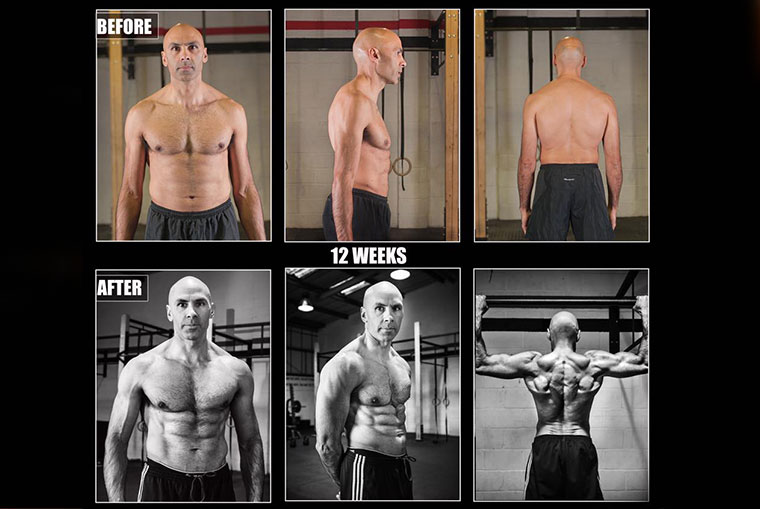HOW can you remain strong, gain or maintain lean muscle and reach and/or retain a high level of fitness/physical performance on a plant-based diet?
Ask that question to Barney DuPlessis, the 2014 Mr Universe, or David Haye, the former world cruiserweight and heavyweight boxing champion, or Patrik Baboumian, the world record-holder for log-lifting (190kgs), or Alexey Voevoda, an Olympic gold medallist in the bobsleigh and now a world champion arm-wrestler, or Frank Medrano, a bodybuilder and calisthenics master, or Billy Simmonds, the 2009 Mr Natural Universe, a powerlifter and martial artist, or even – and perhaps most famously – Carl Lewis, perhaps the greatest Olympic Track and Field athlete ever. I could go on.
Or take a look at Jim Morris, who passed away recently at 80 but competed as a bodybuilder into his late-70s and still looked incredible. Sure, these men are the exception rather than the norm. But that’s because eating vegan is the exception rather than the norm.
However, that is changing. More people – and athletes – are now switching to a meat-free diet and for a variety of reasons – be they related to health, the environment, animal cruelty or a combination or all of the aforementioned. My aim here is to offer some argument on why being vegan in the world of strength, fitness, conditioning, sport and muscle-building is not a limiting factor. When it comes to the Amazing 12, even though the version of the diet is not vegan, a vegan version exists and is very effective. In fact, completing the program as a vegan has already been achieved on many occasions and with highly impressive results.
I made the switch over a decade ago. I was raised a meat-eater. Practically everyone in my family eats meat. But I made a choice that felt right for me. In my mid-twenties, when I trained hard five days a week, ate meat and dairy in copious amounts and could deadlift 220kgs (even though I wasn’t built for it), my bodyweight never drifted over 12st 7lbs (175lbs). Immediately after going vegan, my body mass dropped quite dramatically (which is quite normal). But now I’m not only the same weight I was more than half a lifetime ago, but my physique – especially after completing the Amazing 12 – is more muscled and leaner. Physically, at nearly 50, I’m in a better place.
I try to eat as much from whole foods as possible. That’s the key, because it’s just as easy to adopt a vegan junk food diet as it is a regular junk food diet. Going plant-based doesn’t automatically translate to being healthy. But I’m assuming my audience here is going to be athletically motivated and, if about to embark on the Amazing 12, will be required to make healthy choices. The most frequently asked question for anyone on a plant-based diet remains: “from where do you get your protein?” The misconception is that without animal products protein sources are either insufficient or scarce.
Here’s a list of vegan protein sources (and in no particular order): peanut butter, lentils, almonds, tempeh, quinoa, oatmeal/porridge, bulghar, tahini, walnuts, beansprouts, sunflower seeds, chia seeds, peas, hemp seeds, brown rice, black-eyed peas, edamame, spinach, broccoli, black beans, flax seeds, tofu, dulse, chickpeas, almond butter, spirulina, kale, green beans, chlorella, sunflower sprouts, alfalfa sprouts, kidney beans, buckwheat…
There are also nowadays some excellent brands of vegan protein mixes made from a variety of sources.
As you can see, the list is abundant, varied and rich in minerals, vitamins and fibre, precisely what you require for a healthy lifestyle and to help achieve optimal results on the Amazing 12 and in the sports and fitness arena. Still not convinced?
Rich Roll, one of the world’s fittest men and an Ultrathon world championship competitor in his 40s, supports his dietary choice by explaining: “some of the strongest and most fierce animals in the world are plant-powered.” DuPlessis adds: “You don’t need meat to grow muscle. Protein is protein no matter where it comes from. It gets broken down into amino acids, which are the building blocks of muscle tissue.”
The debate as to whether humans were actually designed to eat meat or just plants is still an open one (depending on who you choose to believe), but it’s hard to argue that, for instance, a gorilla or a horse is lacking in muscle mass or physical prowess. DuPlessis grew up vegetarian until the age of 18, but was of the belief he needed to consume meat to be a successful bodybuilder. He soon realised, however, that was not the case. Now he insists he is getting leaner and bigger (weighing 107kgs). “I’m stronger than I ever was eating meat.”
(Insert picture of DuPlessis)
Iranian-born Baboumian, a multiple world record-holder in strongman events, gave up eating meat two years ago. He says he’s stronger than he’s ever been. At 33, weighing 116kgs, he became Germany’s strongest man, capable of bench pressing 215kgs and deadlifting 360kgs.

For Voevoda the benefits in adopting a vegan diet are four-fold: 1. less suffering to animals; 2. body feels cleaner; 3. better flexibility and elasticity; 4. fewer colds.
I know first-hand how hard David Haye trains. He’s an impressive athlete. He stopped eating meat in 2014. In 2016, after a series of injury setbacks, he made a comeback. Haye weighed a career-heaviest and impressive-looking 16st 3lbs and demolished his opponent in the first round.
Haye is not the only exponent from the combat world to have opted for a meat and dairy-free diet. Mac Danzig won the UFC’s TUF season 6. “I used to believe you needed meat,” he said. “Then I saw examples of vegan athletes getting results and tried it. Things are different now. It’s not the year 200.”
Nate Diaz, who won the UFC’s TUF season 5, is also vegan – actually raw vegan (uncooked food). “I feel stronger than ever and my endurance is getting better,” he said.
Another MMA fighter, Britain’s James Wilks, is also a vegan. He won the UFC’s TUF season 9 at welterweight and, following injury, became a vegan. “My strength increased and endurance improved,” he said.”As an athlete you want your endothelium [inner lining of the arteries] to be as healthy as possible. It’s responsible for nitric oxide production, which transports oxygen to muscles and dilates the arteries. More oxygen means better performance.”
No-one can dispute the capabilities of Medrano, famous for his calisthenics prowess. “Never in a million years did I imagine my physical abilities and conditioning could take me to unprecedented levels on a vegan plant-based diet,” he revealed.
“Two friends of mine, who train the way I do, introduced me to the lifestyle. Both had supernatural strength and conditioning. When I found out they were vegan, that grabbed my attention.”As the weeks went by, my energy rapidly increased, my muscle endurance and recovery increased to miraculous levels and I became stronger, faster and stopped feeling fatigued or bloated.”
Veganism is not for everyone and I’m not advocating that it should be. But when it comes to getting physical results, I’d like to think I have shown from my own transformation and provided some valid examples here that a plant-based diet is not the handicap some might consider it to be.
Claude at almost 50 years old


